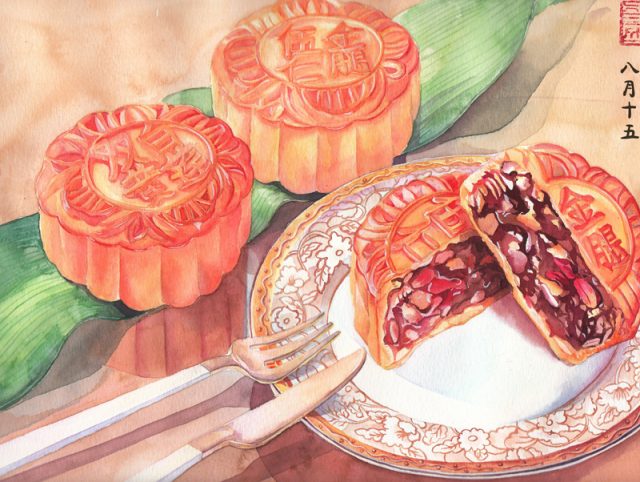Mid-Autumn Festival is the second grandest festival in China after Chinese New Year. It’s a time when families come together to appreciate the full moon and eat mooncakes during the festival. In fact, besides these two traditions, there are many others.
1. Worshiping the moon
On that day, people put the “god of the moon” sign, peaches, watermelons, mooncakes and other offerings on a table at home or outdoors, and then knelt down and kowtowed one by one, praying for blessings from the “god of the moon”.
2. Watching the tide
3. Making colorful lanterns
4. Burning pagodas
When night falls, people gather together in an empty place, and pick up broken bricks and tiles to pile up several pagodas, large and small. The pagodas are hollow and are stuffed with firewood.
5. Playing clay rabbit
Some people imitate opera characters and carve the rabbit in a stylized way, such as a warrior with a golden helmet and armor, riding lions, elephants and other beasts of prey, or some riding peacocks, cranes and other birds.
6. Stealing vegetables
There is a legend that during the Mid-Autumn Festival, the fairy in the Moon Palace will go down to the human world to spread sweet dew on the vegetables. Whoever eats vegetables with sweet dew on this night will be healthy and happy.
7. Eating river snails
People believe that eating river snails in the Mid-Autumn Festival can make the eyes clear. River snails are rich in vitamin A, which is an important substance in visual pigments.
8. Drinking osmanthus-flavored wine
Osmanthus fragrance is a symbol of prosperity and auspiciousness. Drinking Osmanthus fragrance wine at Mid-Autumn Festival implies sweetness, wealth and auspiciousness, and prosperity of the family.
Nowadays, some traditional customs are disappearing, and the younger generation have their own ways to spend the Mid-Autumn Festival, such as shopping, going to a party, or traveling, seemingly forgetting the traditional customs of the festival.
This is because many in the post-80s and 90s generations are working and studying in other cities and some of them have many pressures in life.
However, if they had chance, they would come back home to have a reunion dinner with their families.

